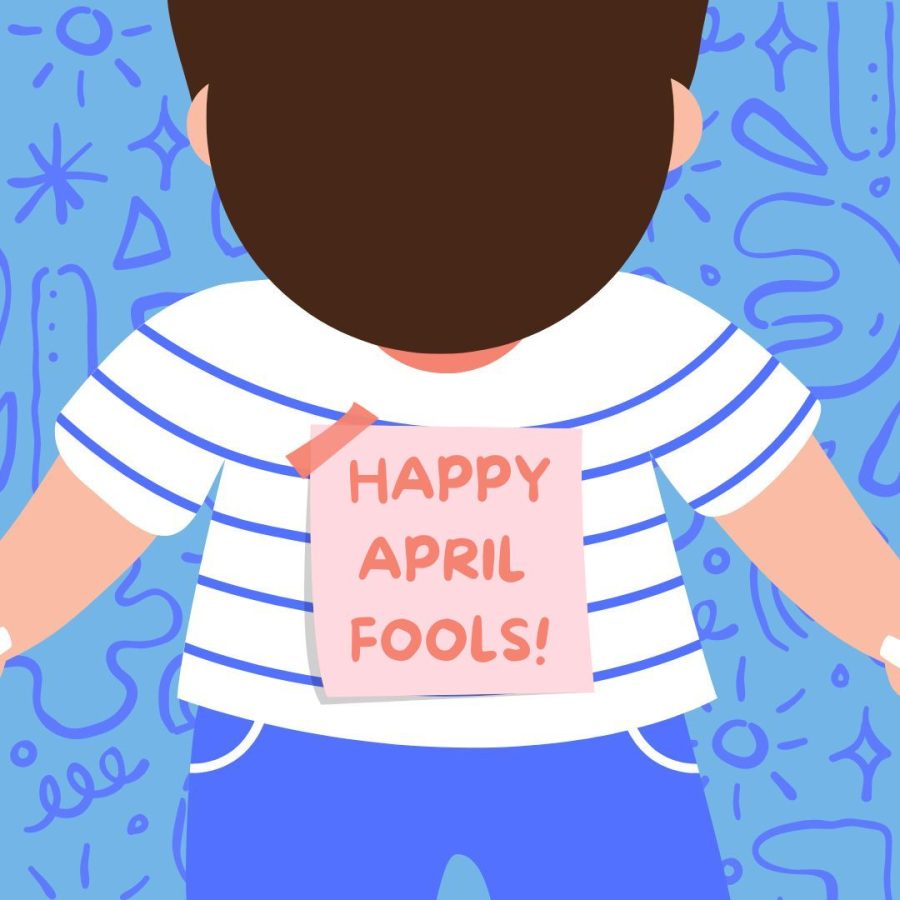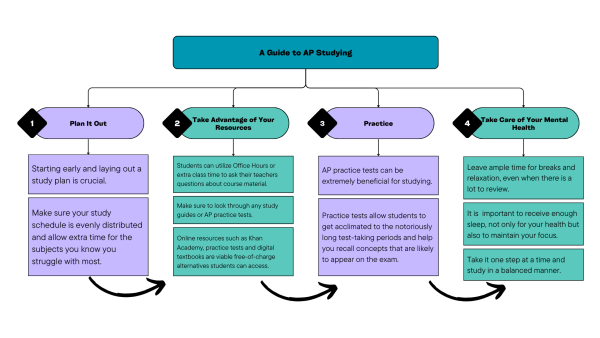Hijinks, Hoax and Hilarity: April Fools Across The World
Every year on April 1, it is customary to play practical pranks on your friends and family. Pranks from previous years include adding a whoopee cushion under someone’s chair, creating a fake spill, putting school supplies in jello and more.
March 29, 2023
Given that the structure of modern society is built on social contracts and mutual trust, blatantly lying to others for a laugh is typically looked down upon. However, an exception comes once a year: April Fools’ Day, where deception becomes a welcome source of comedy.
On April 1, it’s not uncommon across the country to see fake stories in the news or friends pulling pranks on each other, some more harmless than others. While April Fools’ Day is one of few widely recognized non-secular holidays across the country, it is neither as Western nor as new as one might expect. In different forms all across the world, playing tricks on others has been a staple to bring in April for hundreds of years. For the French who originated this tradition, even longer.
France
In 1582, France, alongside other Catholic states, adopted the Gregorian calendar. This change moved the start of the year from Easter in April to the first of January. Due to the communication methods of the time, this information traveled slowly, leaving many out of the loop — while others simply didn’t want to make the change. To both inform and mock those celebrating the new year preemptively, these people became the butts of “Poisson d’Avril” tricks.
These people would be called “April fish” or Poisson d’Avril and would have paper fish placed on their backs as a jab at their naivety, as in the spring fish are more plentiful and easy to catch or are more gullible than fish in other months of the year. This tradition, although introduced over five hundred years ago, has been readapted as France’s modern prank-giving equivalent of April Fools’ Day.
Although France set the blueprint for April Fools’ and playing jokes as a tradition, it would not go on to be a popular holiday on quite the scale it is today until it was adopted by Britain in the 18th century.
United Kingdom
Britain’s “All Fools’ Day” was not fishy like in France, nor did it last a single day. Instead, the tradition spanned two days: the first was “Hunting the Gowk,” where people would be sent off on errands they couldn’t fulfill, whereas on the second, “Tailie Day,” people would pin “kick me” signs and tails to each other’s bottoms as more low-brow pranks.
While Scotland has turned their April Fools’ Day name to “Hunt-the-Gowk Day” as an homage to the first day of celebration, Britain has cut down their April Fools’ celebrations significantly, from spanning two days to just half of one. On April 1, pranks and jokes are only acceptable until noon. Afterward, the prankster becomes the fool. Either way, “Hunting the Gowk” set the standard for other countries who have adopted April Fools in the years since, setting the standard for a typical “fool’s errand.”
Britain, with its worldwide influence, has served as a significant influencer in spreading this tradition of April pranks worldwide. Not only has it spread across the pond to the United States, but further across Europe and Asia, all with their varied celebrations.
Sweden
Like other countries, Sweden’s “Första April” is a day of tricking others with practical jokes, but they conclude in a different way than telling the person that they’re the April fool. Instead, a successful prankster would shout the Swedish equivalent of, “April, April, you stupid herring, I can trick you wherever I want!” before running away. If the prank fails, however, the prankster can try again on May first, with a successful trick being announced with “May, May moon, I can trick you to Skåne!”
Greece
Not only does the satisfaction of a successful trick motivate pranksters in Greece to participate in April Fools, but there is a Greek myth that those who trick others on this day will be rewarded with fortune. Based on folklore, there is a belief that the person who plays a trick successfully will be gifted with a bountiful harvest while the prank’s recipient will be cursed with a year of misfortune, taking rewarding bad behavior to a whole new level.
Poland
Serious activities beware, Poland’s “Prima Aprilis” takes its day of pranks to an extreme. Like in other countries, people enjoy playing complex pranks on others, but public institutions do too, often creating sophisticated and complex hoaxes in public media. The significance of these April Fools’ pranks was so great that in 1683, the Polish government had to change their signing date for an alliance to March 31 instead of April 1 because of the fear it wouldn’t be taken seriously.
Although not everyone across the country is an April Fools fan, 64% of Americans enjoy the holiday, and its popularity can be seen with its unofficial adoption worldwide. As April Fools’ Day comes this year, prank kindly and in moderation, but be careful not to end up as the “April Fish.”















